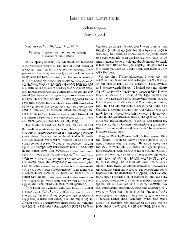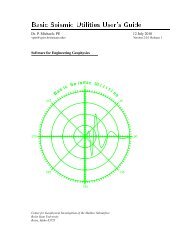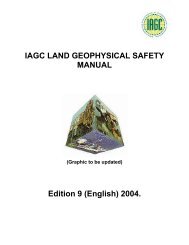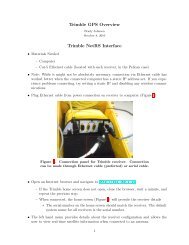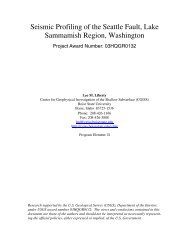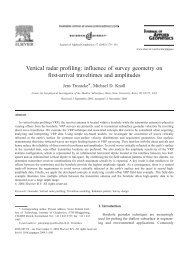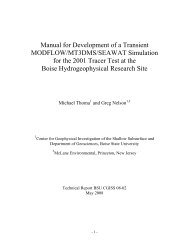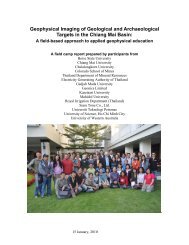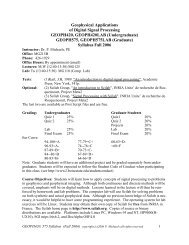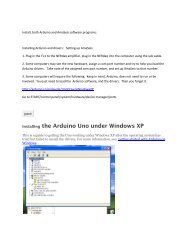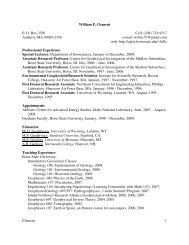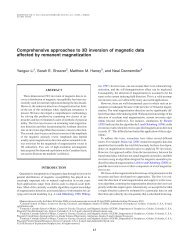Chapter 9 - Instructional Media: Chalkboards to Video - CGISS
Chapter 9 - Instructional Media: Chalkboards to Video - CGISS
Chapter 9 - Instructional Media: Chalkboards to Video - CGISS
You also want an ePaper? Increase the reach of your titles
YUMPU automatically turns print PDFs into web optimized ePapers that Google loves.
dictionaries, extra time, separate testing sites, or other special<br />
conditions.<br />
• Bring extra copies of the test <strong>to</strong> class.<br />
Having <strong>to</strong>o few copies of a written exam can be a disaster. You<br />
can avoid problems by bringing more copies of the exam than<br />
you think will be needed. Also, when duplicating the test, be<br />
certain that no pages are missing. Missing pages can pose a<br />
serious problem unless a contingency has been planned.<br />
• Do not interrupt students while they are taking the exam.<br />
Before the exam, students can be informed that they should<br />
check the board periodically for instructions or corrections. You<br />
can minimize interruptions during the exam by writing on the<br />
board any instructions or corrections that need <strong>to</strong> be made<br />
after the exam has begun and then calling students’ attention<br />
<strong>to</strong> them.<br />
Helping<br />
Students<br />
Learn from<br />
Tests<br />
Testing’s most important function is <strong>to</strong> serve as an educational<br />
<strong>to</strong>ol, not simply as a basis for grading. Not only do tests direct<br />
students’ studying, but also they can provide important corrective<br />
feedback for the student.<br />
Returning Test Papers<br />
Returning test papers promptly is appreciated by students and<br />
conforms <strong>to</strong> traditional learning principles. However, if you do not<br />
plan <strong>to</strong> discuss the papers, do not hand them back at the<br />
beginning of the hour or you risk losing students’ attention for the<br />
rest of the hour.<br />
Although students appreciate your returning examinations <strong>to</strong> them,<br />
there may be some question as <strong>to</strong> whether you should return<br />
multiple-choice examinations. Multiple-choice items are difficult <strong>to</strong><br />
construct, and you may not want the items <strong>to</strong> “get out.” However,<br />
you can return separate answer sheets so that your marking and<br />
arithmetic can be checked. Allow students <strong>to</strong> have copies of the<br />
examination while you go through the test. If you follow this<br />
method, however, certain questions arise. Does such a procedure<br />
destroy the validity of the items in future tests Do the students<br />
benefit from an exam review These are experimental questions <strong>to</strong><br />
which we have only partial answers, but evidence suggests that<br />
validity is not lost and that students do learn from their corrected<br />
papers, even when they do not get <strong>to</strong> keep them. Although you<br />
may not wish <strong>to</strong> spend class time quibbling over some individual<br />
items, you should make known your willingness <strong>to</strong> discuss the test<br />
individually with students.<br />
Providing Feedback for Essays and Short-Answer Tests<br />
The comments written on essays and short-answer tests are far<br />
more important than the grade. What kinds of comments are<br />
Section: Student Assessment 170 <strong>Chapter</strong> 12: Testing Issues



